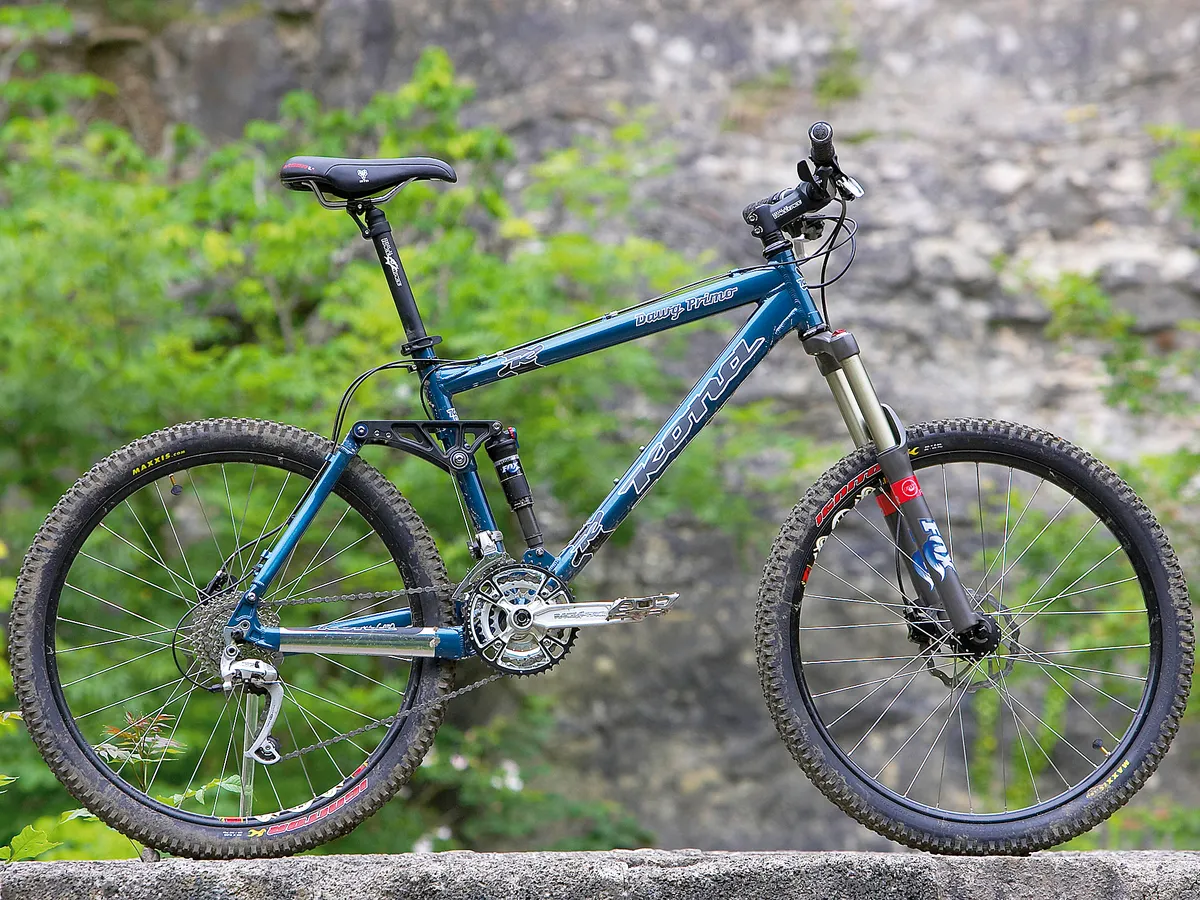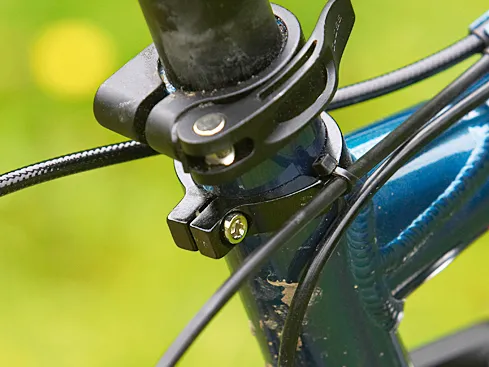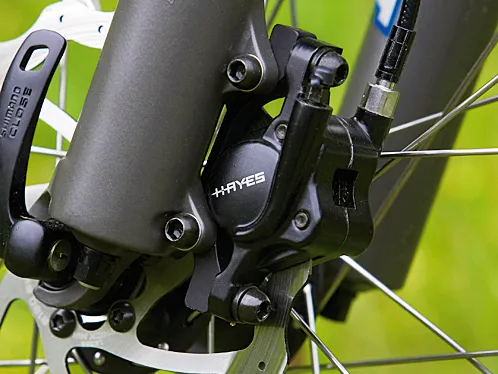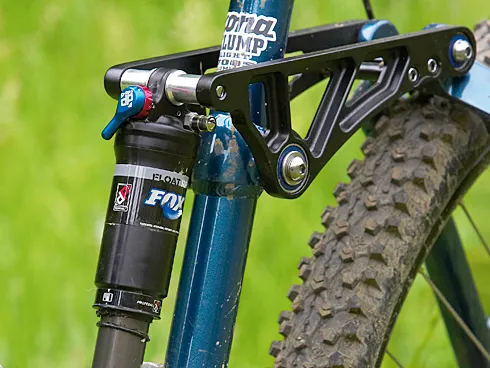A medium-weight, long-travel all-rounder, the Dawg Primo is worth a look if your needs run to tackling almost anything the trail throws at you.
Few manufacturers can claim the breadth and depth of experience in taming radical trails as Vancouver-based Kona. The Dawg full sussers are billed as 'backcountry dual' machines, which is as useful a tag as any for describing a long travel all-rounder that's trying to be all things to all riders. The Dawg Primo occupies the middle ground in the range, at just under £2k.
Frame
The clean, classic lines of Kona's deceptively simple suspension design are carried right the way through its dual suspension line up, from cross-country race machines up to World Cup downhill gravity sleds. Eschewing both complex linkages and the lure of funky swingarm profiles, the tidy profile and prominent rocker arm disguise what is effectively a variant on the single pivot theme. The asymmetric chainstays pivot just behind the bottom bracket, roughly in line with the small chainring. Straight seatstays link the back of what is, in essence, a simple swingarm with the large, cutaway rocker. This, in turn, drives the shock.
The front triangle continues the no-nonsense theme of functional simplicity, with square-to-round section tubes and extra strengthening gussets at the vulnerable head tube junction and at the point where the seat tube joins the top tube. It all shouts strength, rigidity and a refreshing honesty of design that's at odds with the current fashion for ever more complex tube profiles.
Keeping front and rear wheels glued to the ground are a pair of Fox air shocks - a Float RP2 at the rear and a Float R fork at the front. The RP2 has adjustable rebound damping and a two-position ProPedal knob, but lacks the degree of compression damping adjustability that some of the Kona's rivals offer. The fork is also a pared-down version of the excellent Float series, with just a rebound adjuster to keep knob-twiddlers happily occupied. Despite the lack of bells and whistles, it's a well-matched combination that's easy to set up and confidence-inspiring in use.
Components
The Kona has the distinction of being relatively affordable, although it shows in a couple of speccing choices. Shimano's disc hubs are solid and reliable, but not as light as some of the competition. And Hayes' HFX-9 brakes offer plenty of power, but without the modulation or adjustability of the best of the rest. Otherwise there's no cause for complaint, and WTB and RaceFace kit add a classy touch to the package.
Ride
The Kona's unusually high bottom bracket makes its presence felt as soon as you throw a leg over the top tube. Even with the suspension set up with a little sag, it creates a feeling of being sat on top of the bike rather than between the wheels - a subtle distinction, but one that's immediately recognisable. It's initially disconcerting, but plenty of standover gives lots of bailout room and those extra millimetres of space beneath the cranks mean fewer chances of grounding a pedal in the rough.
It'd be fair to say that, as with many single pivot designs, Kona's suspension set-up has been given a new lease of life thanks to better shock damping technology. A system that's inherently sensitive to small bumps at the expense of similar sensitivity to pedal input has been effectively tamed by Fox's ProPedal compression damping, to the point where the pedal-induced bobbing, although still noticeable, won't be an issue for most riders. It'd be nice to have greater adjustability on the shock, though.
As you'd expect from a design that's been well proven, the Kona's a willing trail companion with no handling vices to speak of. Well, almost none. Like the Orange Five Pro, the lack of travel adjustment on the fork and its tendency not to sit into its travel on climbs makes for a front end with a mind of its own on steep grades. On descents, on the other hand, the Kona's relatively stout build and long wheelbase lends itself to aggressive, confident line choices and a turn of speed that's only bettered by bikes with better-steering forks such as the Cannondale Prophet 2.
All of which makes the Dawg a tough bike to pigeon-hole. Neither as agile and nippy as some nor quite as solid as others, it doesn't excel in any one area. But if you need a trustworthy all-day trail bike that'll take some abuse in its stride, it's well worth a look.
In short, its solid downhill handling combined with a strong frame build inspires confidence when the going gets rough. But the front end wanders on steep climbs. And there are lighter - and better specced - bikes out there for not a great deal more.



